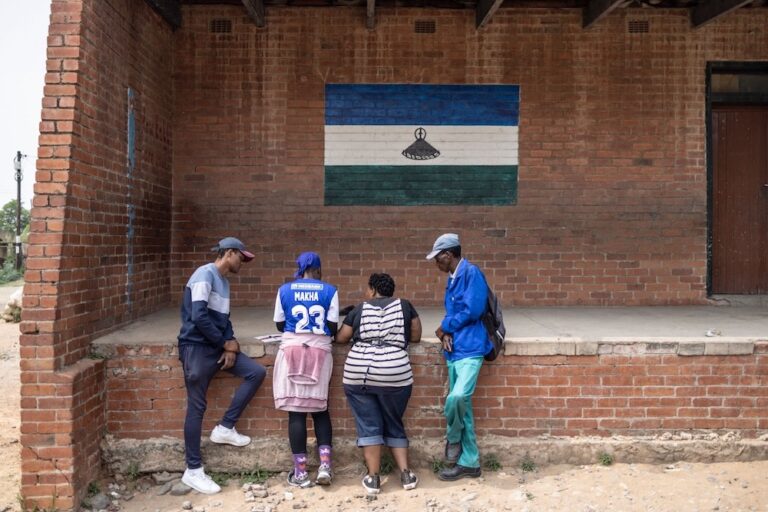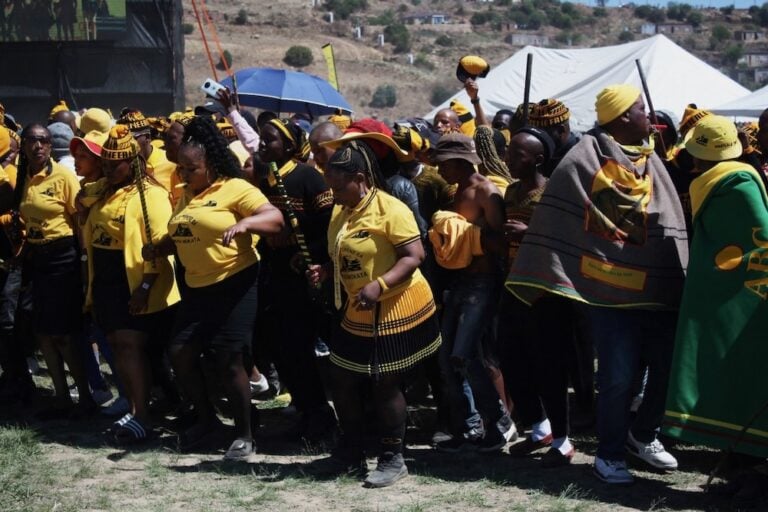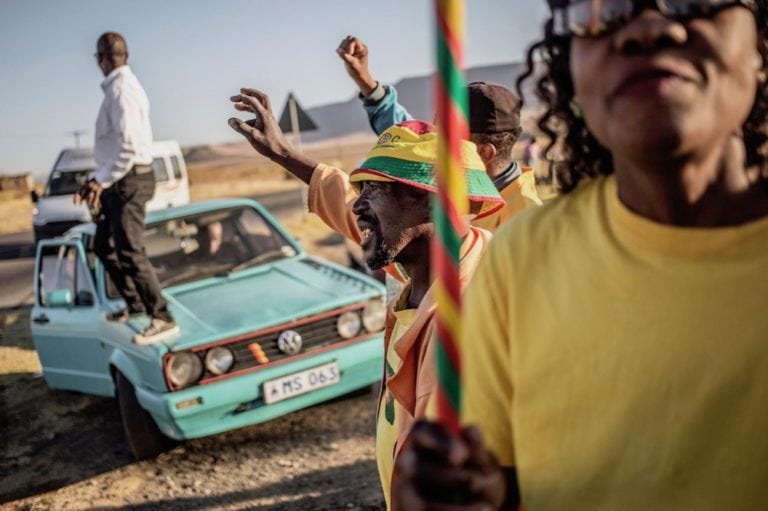(MISA/IFEX) – On 2 March 1999, the editor of “MoAfrika” news magazine, Candi Ramainoane, was denied entrance to an ongoing court-martial being held in the Lesotho capital, Maseru. This was the second time in about as many months that Ramainoane was denied access to the court-martial in which forty nine soldiers were facing charges of […]
(MISA/IFEX) – On 2 March 1999, the editor of “MoAfrika” news magazine,
Candi
Ramainoane, was denied entrance to an ongoing court-martial being held
in
the Lesotho capital, Maseru. This was the second time in about as many
months that Ramainoane was denied access to the court-martial in which
forty
nine soldiers were facing charges of treason and a possible death
penalty.
**Updates IFEX alerts of 10 February, 27 January and 21 January 1999**
Ramainoane told the Media Institute of Lesotho (MILES) that the soldiers
guarding the entrance of the prison grounds where the court-martial was
being held would not allow him to go through. “Those soldiers, they
wouldn’t
give me their names, told me that they were ordered to stop me from
entering. They wouldn’t even tell me where that order came from,”
Ramainoane
said.
On hearing about the incident, Judge Advocate Brendan Cullinan, who is
advisor to the five army officers presiding over the court-martial, told
the
court that Ramainoane “is absolutely entitled to come to this court. I
don’t
know why the soldiers at the gates are refusing him entrance. He has as
much
right as anybody to come to this court.”
Background Information
On 19 January, Ramainoane was denied access to the court-martial by a
Military Police (MP) officer. When he asked why he was being prevented
from
entering, he was told that “orders are, that you are not to be allowed
in”
and he was further ordered to stand to the side.
After refusing to identify himself to Ramainoane and to say who had
given
him orders to bar Ramainoane, the MP left him alone. However, Lt. Tanki
Mothae, public relations officer for the LDF, later confirmed to MILES
that
he had issued the order the previous day on the grounds that Ramainoane
had
broken the rules of court-martial proceedings by interviewing some of
the
accused soldiers. Ramainoane countered by saying that he had not been
informed or warned that he had broken such rules, instead he had been
pushed
and threatened with assault by those at the entrance.
The Director of Public Prosecutions (DPP) in Lesotho is currently
examining
evidence with a view to possibly charging Ramainoane because of several
articles criticising the court-martial. The matter was referred to the
DPP
by Judge Advocate Cullinan, after Ramainoane failed to heed a summons
to
appear before the court-martial and apologise for the articles. The
articles, which were published in “MoAfrika” on two consecutive weeks,
cast
doubt on the court-martial’s ability to administer justice. Cullinan had
demanded both a written and oral apology from Ramainoane.


